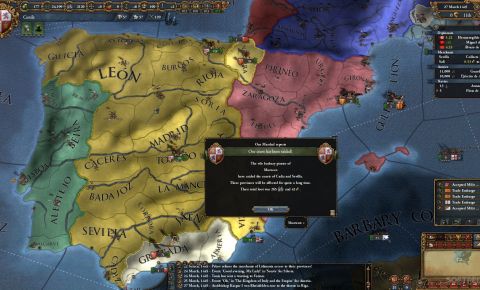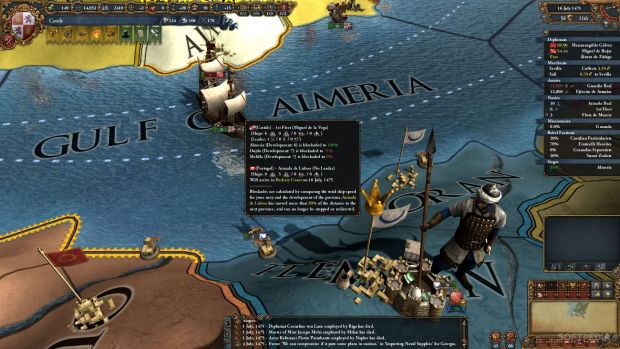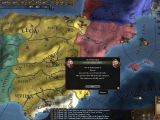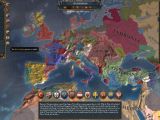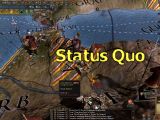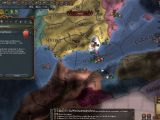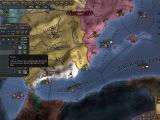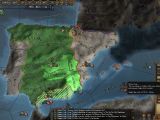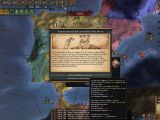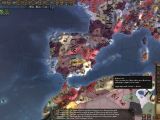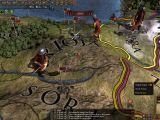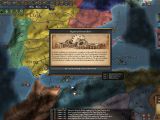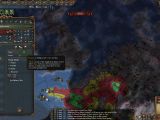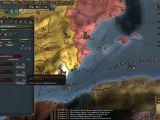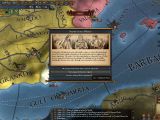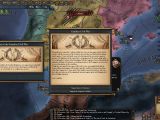Europa Universalis IV - Mare Nostrum, as the name implies, is an expansion for the grand strategy title that aims to make the naval aspect of the game feel more engaging while also improving other mechanics, including trade and espionage.
Much of the impact of the new ideas depends on the nation that players tend to play as, but even for those who tend to lead land-focused factions with limited interest in trade, the way core claims and other covert operations are now conducted will change strategies and goals.
Mare Nostrum increases the points of interest that players have to deal with, and at certain moments, there are so many things that require constant attention that the game becomes a bit of a chore.
Europa Universalis IV is both more difficult and more open with this expansion, and it's a pleasure to see how different alternate histories evolve when one nation that historically succeeded fails to win a crucial war or crumbles because of internal divisions.
The title is offered only on the PC and was created by the team at the Paradox Development Studio.
Story
Europa Universalis IV - Mare Nostrum is an experience about the limits of domination and the power of great figures to affect the world around them, with gamers able to take control of any nation in the world during the late Middle Ages and then steer its destiny however they see fit.
Paradox has added a range of new events linked to a new corruption value, and there are plenty of choices for gamers to make as they try to find the best historical route for their nation, especially if they have access to all the expansions launched so far.
But, as with other grand strategy experiences from the company, the most narratively engaging part of Europa Universalis IV - Mare Nostrum lies in the player's ability to create their own stories. This happens while exploring a Europe in which Burgundy has become the major power and has eliminated France, or an Asian landscape that is dominated by one of the nomads that has sought to Westernize.
The new Timeline feature makes it easier for players to see how the world has evolved around them and will be a useful tool for those who created After Action Reports or simply want to share their version of history with friends.
Gameplay
Europa Universalis IV - Mare Nostrum expands on the grand strategy concepts that have defined the series, with important tweaks to core systems that give players more balls to juggle at once and some new mechanics to engage with.
The naval aspect of the game receives the most interesting makeover, and it's now easier to deal with fleets when it comes to missions and warfare and harder to make sure that one has the infrastructure needed to field a serious force.
Sailors are a separate resource, created by coastal provinces and influenced by a variety of buildings, policies, national ideas and more, and they are needed by any faction that seeks to have a solid presence at sea to build ships.
Those looking to field heavy ships to defeat enemy fleets while also using light ones to handle trade requirements will have to carefully develop their sailor providing provinces, and there are plenty of interesting choices for empires that need to deal with strong enemies both on land and at sea.
The focus on naval action is also clear in the fact that the range of naval missions has been increased, with two very useful ones designed to hunt transports and create blockades. Moreover, gamers can also switch admirals when their fleets are at sea, which is useful but seems a little weird, given the constraints of the era.
Trade leagues are a new way for commerce-focused nations to improve their performance and gain some allies by convincing one province minors to join, which gives members some benefits but can also offer a trading power some backup when it comes to wars and more diplomatic heft, as well as the ability to really dominate surrounding nodes.
The condottieri concept is another highlight of Mare Nostrum, a way to rent out armies that are sitting idle to get access to money from other nations and to force an accelerated increase in the army tradition.
This can work very well for medium to big countries that can afford to replace losses, which tend to increase as history progresses, but it is relatively hard to convince AIs to pay for troops, and in my games, manpower seems to always be a concern.
A new corruption value and the concept of states are also added in Mare Nostrum to make it more challenging for big countries to continue their expansion and to eliminate the unwieldy oversea mechanics for colonial empires.
I played mostly as Spain and Holland to see how the changes in the expansion affect gameplay, and I found that Europa Universalis IV is more of a challenge, especially when contemplating major expansionist moves.
“One bad ruler can make a nation uncompetitive for decades, and my Spanish plan to control North Africa and then the entire Mediterranean basin was put on hold after I was unable to get enough sailors to create all the fleets I needed.”
Corruption can also be a big problem, and dealing with it often forced me to neglect armies and fleets and limit my war intentions, creating a nice balance for the grand strategy experience between peaceful development and violent attempt to gain new territory and integrate it.
Europa Universalis IV - Mare Nostrum also introduces some significant changes to the map, with most of the attention focused on Africa. There are plenty of new nations introduced to some areas and a new trade setup that should make playing on that continent more exciting.
When it comes to usability, an unconditional surrender option makes it easier to end wars where there's no hope of winning, and map sharing is introduced so that landlocked empires can get a look at the wider world and who's winning the colonization race.
Graphics and audio
Europa Universalis IV - Mare Nostrum does not introduce too many changes when compared to the base game, although anyone can see that there are plenty of extra map views that Paradox has added over time to explore and more alerts linked to the new features.
I used to play the game using mostly the political view, but with the extra focus that has been placed on trade and religion, I have been switching much more lately, trying to get as much information as possible without following the ticker at the bottom of the screen, often too filled with events.
Europa Universalis IV makes it easy for gamers to conduct the affairs of their nation, but the game keeps players so busy that they rarely have time to simply move across the world, see the various landscapes and models or explore the map views.
The musical background for the grand strategy title is well suited to the task of adding immersion, but it can become a little repetitive for those who run marathon sessions trying to make Bohemia or any other medium state a global power.
Multiplayer
Europa Universalis IV - Mare Nostrum adds some great new options for gamers who have both the time and the friends required to engage in a massive contest for world domination or lesser goals.
The naval-focused mechanics make coastal nations, which tend to be more centered on trade than on direct warfare, better able to protect their interests. They thus tend to lead to interesting alliances between various types of powers that have similar interests.
The Good
- Espionage and claims tweaks
- Corruption and state concepts
- Limitations placed on expansionist nations
The Bad
- The game can become very complex
- A little too easy to get to some disasters
Conclusion
I can appreciate the extra complexity the expansion introduces to Europa Universalis IV, although I fear that it might be a little too much for those players who are still getting to grips with the grand strategy title.
The Paradox title remains one of the most engaging strategy experiences of the moment, the kind of video game that can occupy hundreds of hours of playtime and can drive gamers to become interested in real-world history linked to the countries that they choose to lead in the video game.
 14 DAY TRIAL //
14 DAY TRIAL // 